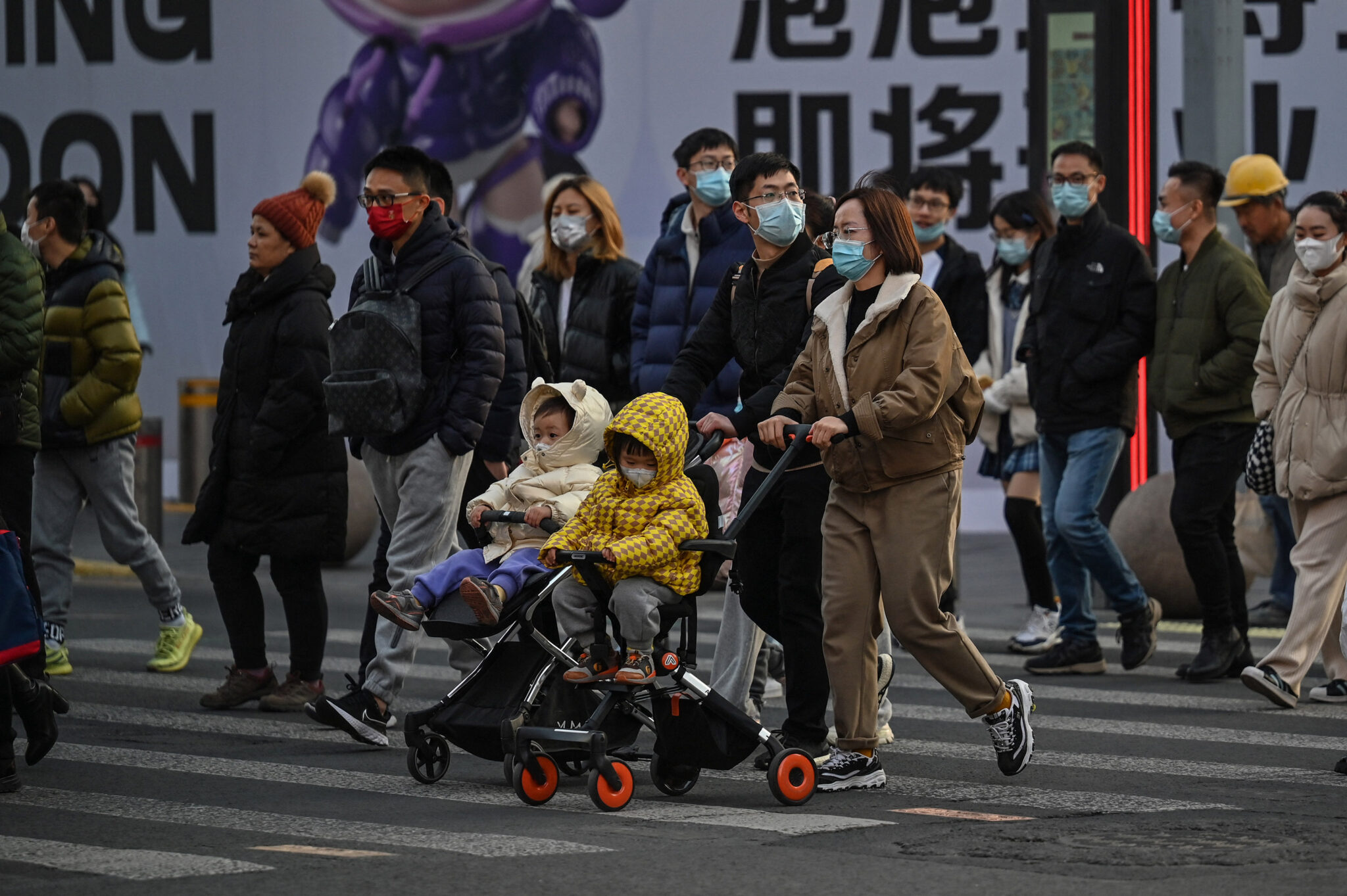
Li Meng, a single mother, is raising her two-year-old daughter alone in Shanghai. But to society and the state, she is almost a second-class citizen, as illegitimate births are highly frowned upon in China. Like Li Meng, millions of women face condescending and even contemptuous looks on a daily basis. In addition, there is economic discrimination: only married women are eligible for social assistance related to maternity.
After becoming pregnant, Li Meng chose to keep the child, despite the father’s departure and the precarious life that awaited her. Since she is not married, she has not taken maternity leave. The only possible option: quit her real estate job to take care of her baby. “A lot of people discouraged me (from giving birth). My mother told me I was crazy”says Li Meng, who uses an alias to avoid further stigmatization, she says. “For her, in China it was something unacceptable for a traditional family like ours”†
China has relaxed its contraceptive policy since 2016 to boost the birth rate, whose decline threatens economic development. But while all couples can now have three children, maternity leave and pregnancy-specific medical coverage remain reserved for married women.
However, Li Meng was not discouraged. In an effort to assert her rights, she embarked on an exhausting administrative search that took her from office to office. “But it’s like they pass the hot potato”she complains. Faced with repeated refusals from the administration, Li Meng filed a lawsuit.
Births out of wedlock go “against public order”
China has more than 19 million single mothers, including divorced mothers and widows, according to a 2019 report from a government-affiliated research institute. But these women are at an impasse, notes Dong Xiaoying, a lawyer who founded a support network primarily offering online advice.
“The law doesn’t say that having an illegitimate child is illegal (…) But it doesn’t say that it’s legal either.”she points out. And the struggle is not just administrative. Many single mothers also have to deal with the surrounding hostility.
Symbol of the dominant state of mind: The Ministry of Health ruled in 2017 that births out of wedlock were in progress “against public order and morality”†
So when Wang Ruixi took to the internet last year to express her pride in raising her daughter alone, she said she had a barrage of online abuse. The activist left China and now lives in Europe. “I can tolerate discrimination and swear words”she explains. ‘But I don’t want my daughter to grow up in such an environment’†
However, some things are getting better. Since 2016, children from single-parent families can finally “hukou”this civil registry book is necessary in China to access public services such as education and health insurance.
Fight not to regret
Another element that could improve the eyes of the authorities: the birth rate fell to its lowest level in decades last year. By shaming these mothers, there is a risk that unmarried and pregnant women will be encouraged to have abortions, further contributing to limiting the birth rate.
Another single mother from Shanghai, Ms. Yu, who does not want to reveal her first name, has a two-year-old son. She also fought in vain against the government. †Everything I’ve done has been for nothing”she sighs. Authorities even called his boss to complain about his insistence. “We have to fight for (our rights). So at least we have no regrets”she says.
The slow evolution of mentalities
Many women see hope in the family story of Chinese-American freestyle skier Eileen Gu, who caused a stir in China last month with her two gold medals at the Beijing Olympics.
The Chinese media quickly turned their attention to her mother, Yan Gu, who raised her champion daughter alone. Social networks then seemed to be aware of the obvious: single mothers can also raise children who succeed in life.
For lawyer Dong Xiaoying, the mentality is changing, however slowly. “But it is impossible to change everything in one day”she points out.
(AFP)